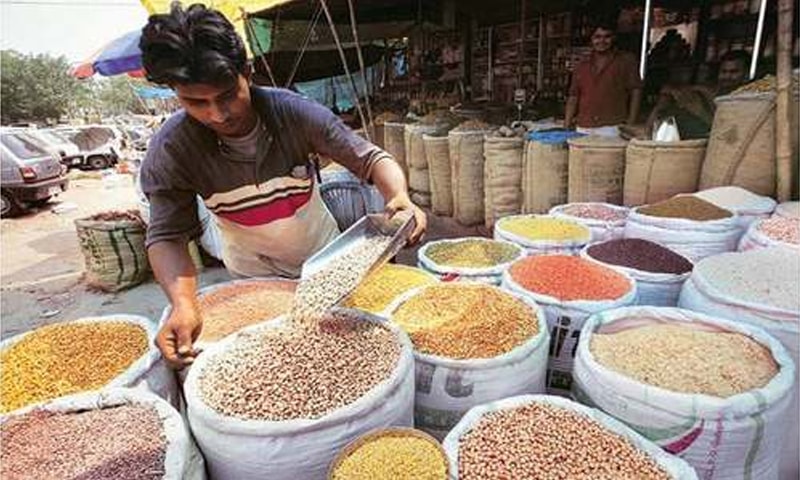KARACHI: A fresh wave of food inflation coupled with increase in compressed natural gas (CNG) prices has increased inflationary pressures on consumers.
Moreover, the aftershocks from the persistent decline in rupee’s value are also likely to take their toll consumer’s buying power in the coming months.
Some CNG outlets have also started charging Rs107 per kg of gas compared to Rs103-104 per kg in anticipation of the expected hike in CNG tax rates proposed in the Budget 2019-20.
In line with their past practices, CNG bodies and associations have kept mum on the unjustified price hike.
A CNG station owner, who asked not to be named, said the price hike has nothing to do with the budgetary measures. Some CNG dealers have pushed up prices due to an increase in power and diesel rates instead of budgetary measures but association cannot press them for price revision due to deregulation of CNG prices.
Minister of State for Revenue Hammad Azhar in his budget speech said CNG prices have increased significantly since the deregulation by the Oil and Gas Regulation Authority.
However, he said that the tax rates on the CNG had not been rationalised proportionately. Therefore, it was proposed to increase the rates for the CNG dealers in respect of Region I from Rs64.80 per kg to Rs74.04 per kg and in respect of Region II from Rs57.69 per kg to Rs69.57 per kg.
CNG stakeholders had already raised prices following deregulation. As in October 2018 they surged prices to Rs103-104 per kg from Rs81.70 per kg owing to 40 per cent rise in gas rate from Rs700mmBtu to Rs980permmBtu. Prior to deregulation, each kilo of CNG was sold at Rs67.50 in December 2016.
Rising sugar prices
In addition to the premature hike in CNG prices, retailers have also increased sugar prices after government proposed the sales tax on sweetener from 8pc to 17pc in the Budget 2019-20 and have pushed up per kilo rates to Rs73-75 and Rs70 in some areas.
Earlier this year, one kilo bag of sugar was being sold at Rs55.
Wholesale rates climbed up by Rs3 per kg to Rs68-69 soon after the budget announcement. Greedy retailers, who had already purchased stocks at old rates, took full advantage of the situation by charging higher prices from the consumers.
Meat sellers gave double price shock to consumers ahead of Eid by surging prices especially in boneless category by Rs20-40 per kg at the start of Ramazan. The sellers further pushed the rates upwards by Rs30 per kg.
Veil without bone meat sells at Rs680-700 in many areas which was priced at Rs600 ahead of Ramazan and veil meat with bones in many areas is available at Rs560-580 as against Rs520-540 while it was selling at Rs500 per kg ahead of holy month whereas official rates for veil -- with and without bones -- are Rs380 and Rs470 per kg respectively.
In many areas, retailers are charging up to Rs1,100 for mutton after raising prices twice in one month as it was selling at Rs950 ahead of Ramazan. Surprisingly, Commissioner Karachi has fixed the price of mutton at Rs740 per kg. Neither mutton nor beef sell at officially fixed rates across Karachi.
Meat prices have continuously risen over the year despite increase in production of livestock and its meat.
According to Economic Survey 2018-19, the country’s goat production rose to 76.1 million in 2018-19 from 74.1m in 2017-18. Cattle and Buffalo production went up to 47.7m and 40m respectively in current fiscal year as against 46.1m and 38.8m in 2017-18.
Beef and mutton meat production climbed to 2.227m and 732,000 tonnes in 2018-2019 as compared to 2.155mn and 717,000 tonnes in 2017-18.
Despite good production of gram pulse, consumers continue to pay higher prices at the retailers’ end. Gram pulse now costs Rs140-160 per kg as against Rs120-130 per kg ahead of Ramazan.
Country’s gram production in 2018-2019 recorded an increase of 35.6pc to 438,000 tonnes on account of higher yield due to favourable weather condition prevalent at the time of sowing.
A wholesaler said the price of gram rose to Rs105-112 per kg from Rs100 prior to Eidul Fitr, while Mash pulse price climbed to Rs145-150 per kg from Rs130-135 per kg and is currently retailing at Rs160 per kg.
Wholesale prices of Masur have also increased to Rs90 from Rs78 per kg.
Published in Dawn, June 18th, 2019














































